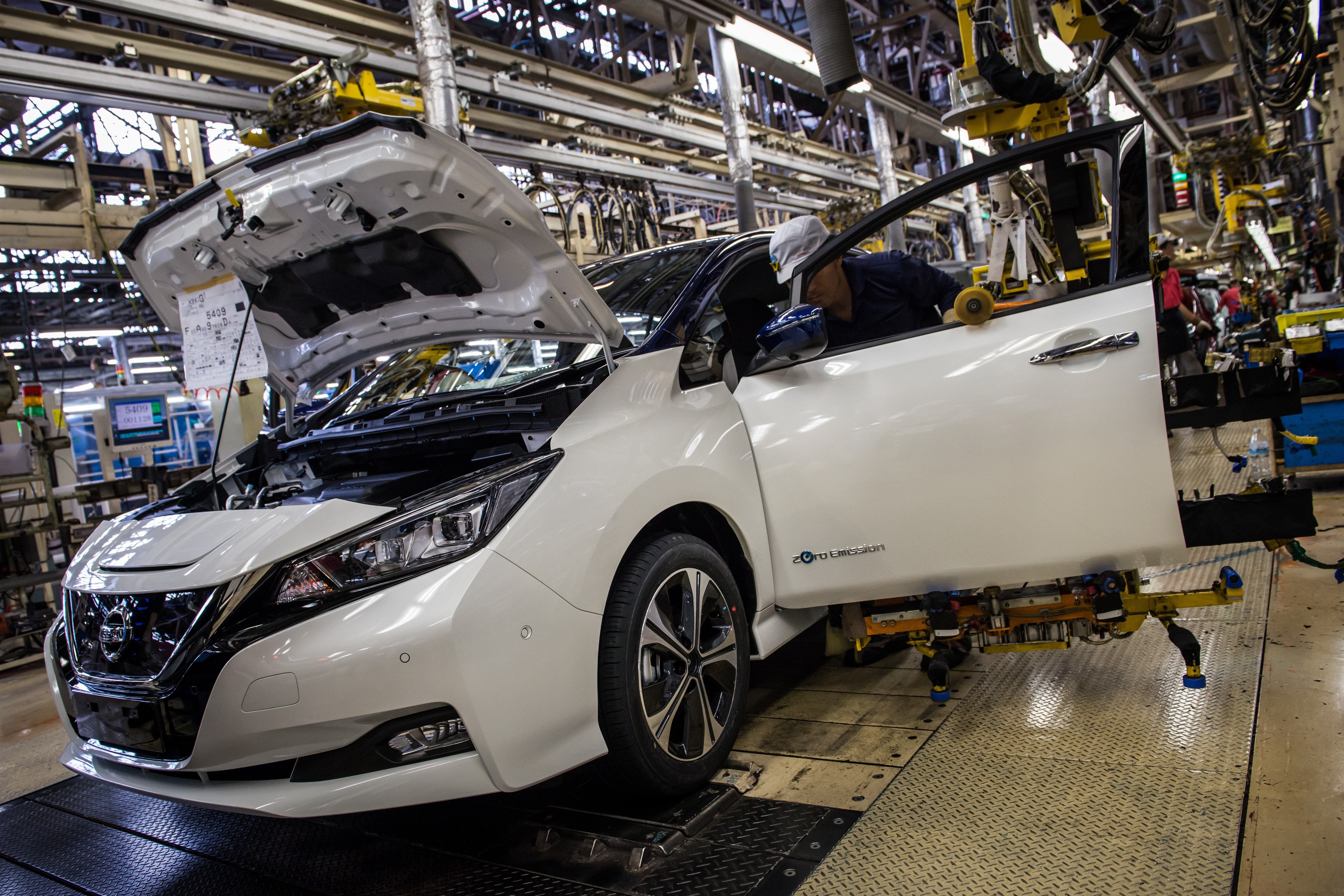Sales of new electric cars in the UK overtakes diesel vehicles for the first time
The month of December 2022 saw battery electric vehicles claim their largest ever monthly market share

Your support helps us to tell the story
From reproductive rights to climate change to Big Tech, The Independent is on the ground when the story is developing. Whether it's investigating the financials of Elon Musk's pro-Trump PAC or producing our latest documentary, 'The A Word', which shines a light on the American women fighting for reproductive rights, we know how important it is to parse out the facts from the messaging.
At such a critical moment in US history, we need reporters on the ground. Your donation allows us to keep sending journalists to speak to both sides of the story.
The Independent is trusted by Americans across the entire political spectrum. And unlike many other quality news outlets, we choose not to lock Americans out of our reporting and analysis with paywalls. We believe quality journalism should be available to everyone, paid for by those who can afford it.
Your support makes all the difference.Sales of electric cars in the UK are growing so fast that they have now overtaken diesel vehicles to become the second most popular type of new vehicle, behind petrol.
The Society of Motor Manufacturers and Traders reported that greening of the British car market continues, with a record low overall level of emissions recorded in 2022 – 111g of carbon dioxide emitted per km travelled on average, a fraction of the level of only a few years ago.
The month of December 2022 saw battery electric vehicles (BEVs) claim their largest ever monthly market share, of 32.9 per cent while for 2022 as a whole, they comprised 16.6 per cent of registrations.
The Tesla Model Y was the best-selling electric car in Britain, and the third best selling car overall, behind the Nissan Qashqai and Vauxhall Corsa (both now with electrified versions).
The growth in electric sales is largely due to fleet and business users – the private car buyer remains more sceptical, fearful of range and difficulties in finding public charging stations.
The government’s Electric Vehicle Infrastructure Strategy forecasts that the UK would require between 300,000 and 720,000 chargepoints by 2030.
Meeting just the lower number would still require more than 100 new chargers to be installed every single day: the current rate is around 23 per day.
Industry experts also worry that the rising cost of electricity and plans to increase car tax on electric vehicles will also stymie their adoption.
More broadly, the number of new car sales rose in the last five months of 2022, but that was not enough to offset declines in the first half of the year. Thus, total sales in 2022 of 1.61 million were down 2 per cent on 2021, itself a depressed year.
The pre-pandemic new car sales figure of 2.3 million looks unlikely to be scaled again in the near future as the recession starts to vote.
Much of the weakness in sales, however, was due to a shortage in supply, which was in turn caused by disruption in supply of semiconductors and electrical components post-pandemic and after the Russian invasion of Ukraine.
The most recent market outlook, published in October 2022, anticipates around 1.8 million new car registrations in 2023.
Looking ahead, Mike Hawes, SMMT chief executive, commented: “Manufacturers’ innovation and commitment have helped EVs become the second most popular car type.
“However, for a nation aiming for electric mobility leadership, that must be matched with policies and investment that remove consumer uncertainty over switching, not least over where drivers can charge their vehicles.”



Join our commenting forum
Join thought-provoking conversations, follow other Independent readers and see their replies
Comments